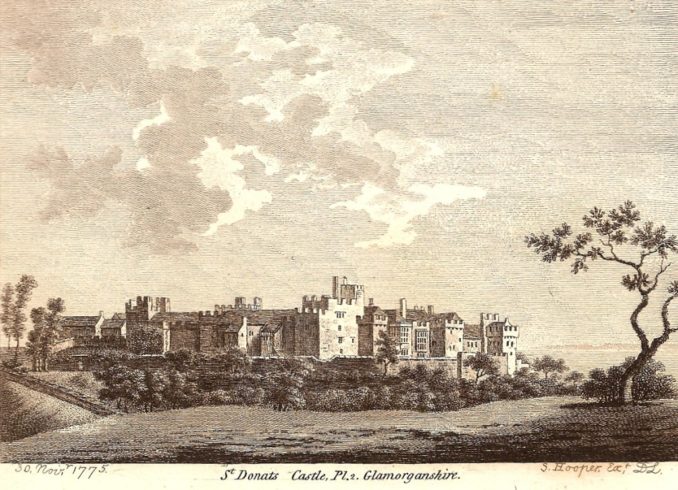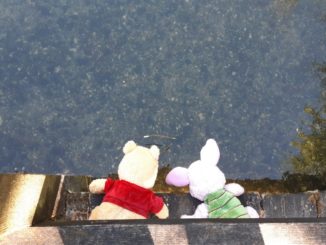
Samuel Hooper (engraver) [Public domain], via Wikimedia Commons
My name is William Carew and, until recent events unfolded, I was the valet to Sir Thomas Stradling of St Donat’s Castle in the Vale of Glamorgan. I entered his service while he was studying at Leyden University, being recommended by my then master, who was a friend of his.
Sir Thomas was a lively and boisterous young man, as were so many of his class and lineage, although he was always an easy master to serve, being generous and undemanding. After the freedom of his life in Leyden, he found the more formal requirements of family life at St Donat’s restrictive, especially after he became the heir to the title after the death of his elder brother. It was agreed that before settling down and taking over the responsibilities incumbent on his position he would undertake a Grand Tour with a friend of his, Sir John Tyrwhitt.
I never understood what he saw in Sir John. He was clever and witty enough, though with a sharp tongue and a cruel streak. Always first to suggest pastimes, he was the last to open his purse and pay his way. Neither of them was married, so when the time came to arrange their affairs before departure, they came to an agreement that should either of them die before their return, the other should inherit their property and belongings. It was not an uncommon arrangement for friends to leave property and bequests to one another, but I remember being in the room when it was discussed, and it was Sir John’s suggestion first.
Arrangements were made, and I had much to do with Sir John’s valet, Richard Phillips, to ensure such requirements as our masters had were carried out. The passage to France was straightforward enough and we made our way to Montpellier, where Sir Thomas wished to visit friends of his. It has to be said that the town itself had a reputation as a bachelor’s paradise, being full of strangers, adventurers and a great many riffraff – and the ladies who offered them companionship and other favours. We ended up staying longer than planned, needless to say.
One evening, Sir Thomas and Sir John were drinking at an estaminet in the old town. Sir Thomas had brought one of his dogs along on the tour – a sweet little spaniel called Suki. Like all of that breed, she was a docile and affectionate creature, her only fault being a trick which Sir Thomas had taught her of jumping up on people’s laps. It had rained during the day, and the square was filled with puddles, which Suki wandered through in her search for titbits. Returning to the table, she first approached Sir John before jumping up on his brocade jacket, leaving muddy pawprints on the cream embroidered sleeves. What happened next still fills me with disbelief, it was so deliberate. Taking the knife with which he’d eaten his meal, he reached down and stabbed the dog to the heart. Sir Thomas, who was somewhat in his cups, reacted with rage and grief, calling Sir John a whoreson villain. Sir John stood up and, without a word, flung down his glove at Sir Thomas’s feet.
Richard Phillips and I were at the duel a couple of days later. Seconds had been found amongst acquaintances in the town, and on a damp, overcast morning, in a forest clearing outside the town walls, the men faced each other.
I know Sir Thomas blamed himself for letting the matter go so far. That is the only reason I can think of for what happened next. Two shots rang out. I know Sir Thomas was an excellent shot and he fired wide. Sir John remained standing. My master fell to the ground, his left eye a shattered red rosette in his face. He was dead. Sir John paused only to ascertain this fact, then left the clearing.
Richard helped me to find an embalmer and to arrange the sad and sorry return of my master’s body to St Donat’s, where he is buried beside his brother in the little church in the valley. The last of his line, there would be no more Stradlings at the Castle thereafter.
This is based on the story of the death of Sir Thomas Stradling in 1738. Tyrwhitt eventually took possession of St Donat’s in 1755 after years of legal wrangling, but never lived there, possibly as a result of the rumours swirling around as to the circumstances of Sir Thomas’s death. He did not enjoy his ownership long, dying in 1760.
© Madam Revenant 2018
Audio file



